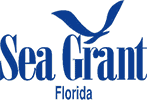One of the most intense Atlantic hurricanes in recent history, Hurricane Irma proved to be a fierce storm that left behind a path of destruction through Florida, from the Keys to Jacksonville and many areas in between. Many of Florida’s shellfish producing counties have been affected by the storm and assessment of losses is ongoing. Below is a summary of resource information being released through our state and federal agriculture agencies. More information will be posted as it is forthcoming.
U.S. Department of Agriculture (USDA) Response
According to a USDA News Release dated September 13, Agriculture Secretary Sonny Perdue announced special procedures to assist producers who lost crops or had other damage to their farms as a result of the recent hurricanes. Also, because of the severe and widespread damage caused by the hurricanes, USDA will provide additional flexibility to assist farm loan borrowers.
USDA’s Farm Service Agency (FSA), is authorizing emergency procedures on a case-by-case basis to assist impacted borrowers, livestock owners, contract growers, and other producers. The measures announced apply only to counties impacted by a National Oceanic and Atmospheric Administration-determined tropical storm, typhoon, or hurricane, including Harvey and Irma that have received a primary Presidential Disaster Declaration and those counties contiguous to such designated counties.
Financially stressed FSA farm loan borrowers affected by the hurricanes who have received primary loan servicing applications may be eligible for 60 day extensions. Full details are available at https://go.usa.gov/xRe8V. A more complete listing of all of the special farm program provisions is posted at https://go.usa.gov/xRe8p.
Among the actions announced are lengthened deadlines for certain provisions. For the Florida shellfish aquaculture industry, this specifically refers to the Noninsured Crop Disaster Assistance Program (NAP). Note that damages associated with Hurricane Irma fall under crop year 2017. Farmers affected by the hurricanes are urged to keep thorough records of all losses. USDA encourages all farmers to contact their local FSA office, as applicable, to report damages to crops. To find the FSA office nearest you, please visit https://offices.sc.egov.usda.gov/locator/app. Additional resources to help farmers and ranchers deal with flooding and other damage may be found at www.usda.gov/disaster.
Florida Department of Agriculture and Consumer Services (FDACS) Information
The state’s emergency information hotline is 1-800-342-3557. Operators are available to provide information on open shelters, special needs, road closures and re-entry to evacuation areas. You can also visit www.floridadisaster.org to find more hurricane-related updates and resources.
If you are interested in helping your fellow Floridians in need, you can sign up to volunteer through Volunteer Florida. Visit https://voad.communityos.org/volunteer-registration-fl-irma or call 1-800-FL-HELP-1. If you’d like to contribute to Florida’s recovery efforts, you can text DISASTER to 20222 to make a $10 donation to the Florida Disaster Fund or visit www.FloridaDisasterFund.org.
If you have you seen evidence of scams or price gouging, Commissioner of Agriculture Adam Putnam offers a consumer hotline with operators available to report your complaints and assist in resolving issues. Call 1-800-HELP-FLA.
In addition, USDA Farm Service Agency has disaster assistance programs that will reimburse folks for several disaster recovery efforts. The website and to sign-up for e-mail updates is https://www.fsa.usda.gov/programs-and-services/disaster-assistance-program/.
U.S. Small Business Administration (SBA) Programs
According to a news release dated September 12, the SBA has added more counties to the disaster declaration in Florida affected by Hurricane Irma. The disaster declaration covers the counties of Broward, Charlotte, Clay, Collier, Duval, Flagler, Hillsborough, Lee, Manatee, Miami-Dade, Monroe, Palm Beach, Pinellas, Putnam, Sarasota and Saint Johns, which are eligible for both Physical and Economic Injury Disaster Loans from the SBA. Small businesses and most private nonprofit organizations in the following adjacent counties are eligible to apply only for SBA Economic Injury Disaster Loans: Alachua, Baker, Bradford, Desoto, Glades, Hardee, Hendry, Highlands, Marion, Martin, Nassau, Okeechobee, Pasco, Polk, and Volusia.
Businesses and private nonprofit organizations of any size may borrow up to $2 million to repair or replace disaster damaged or destroyed real estate, machinery and equipment, inventory, and other business assets. Applicants may be eligible for a loan amount increase up to 20 percent of their physical damages, as verified by the SBA for mitigation purposes. Eligible mitigation improvements may include a safe room or storm shelter to help protect property and occupants from future damage caused by a similar disaster.
For small businesses, small agricultural cooperatives, small businesses engaged in aquaculture and most private nonprofit organizations, the SBA offers Economic Injury Disaster Loans to help meet working capital needs caused by the disaster. Economic Injury Disaster Loan assistance is available regardless of whether the business suffered any physical property damage.
Interest rates are as low as 3.305 percent for businesses and 2.5 percent for nonprofit organizations, 1.75 percent for homeowners and renters with terms up to 30 years. Loan amounts and terms are set by the SBA and are based on each applicant’s financial condition. Applicants may apply online using the Electronic Loan Application (ELA) via the SBA’s secure website at https://disasterloan.sba.gov/ela.
To be considered for all forms of disaster assistance, applicants should register online at www.DisasterAssistance.gov or by mobile device at m.fema.gov. If online or mobile access is unavailable, applicants should call the FEMA toll-free helpline at 800-621-3362. Additional details on the locations of Disaster Recovery Centers and the loan application process can be obtained by calling the SBA Customer Service Center at 800-659-2955 or by sending an e-mail to disastercustomerservice@sba.gov.




